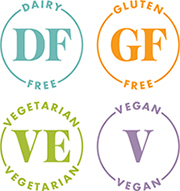

HANDS-ON: 5 MIN. // TOTAL: 5 MIN. // SERVES 2
Pomegranate juice packs a powerful punch of heart-healthy polyphenols. For an added touch, muddle a few pomegranate seeds (also known as arils) with the ginger and lime. The more the arils break down, the more color and flavor they release into the drink.
2 teaspoons thinly sliced fresh ginger
1 (1-inch) lime wedge
3/4 cup cranberry juice
1/4 cup pomegranate juice
6 tablespoons (3 ounces) silver vodka
Ice
1/2 cup club soda
Muddle the ginger and lime wedge in a cocktail shaker. Add the cranberry juice, pomegranate juice, vodka, and 3 ice cubes; cover, and shake well for 15 seconds. Fill two highball glasses with ice and strain the mixture evenly into the glasses. Top each glass evenly with the club soda.
(SERVING SIZE: 1 DRINK): CALORIES 154; FAT 0G (SAT 0G, UNSAT 0G); PROTEIN 0G; CARB 14G; FIBER 0G; SUGARS 14G (ADDED SUGARS 0G); SODIUM 21MG; CALC 2% DV; POTASSIUM 3% DV
alcohol and inflammation
Getting health professionals to talk about the benefits associated with drinking alcohol is tough, and understandably so since it’s so easy to cross the line from beneficial to harmful. And most doctors still don’t think the benefits are great enough to suggest you start drinking if you don’t already drink. But for those who do occasionally consume a glass of wine or a beer, moderate alcohol intake is associated with a lower cardiovascular risk and possibly reduced severity of rheumatoid arthritis. Both of these benefits are attributed to the slight anti-inflammatory effect seen with moderate alcohol intake. Here are a few things to consider before pouring your next drink.
• Moderate consumption is the key to reaping any potential benefits from drinking alcohol. The definition of “moderate” varies among researchers, but it is commonly understood to be no more than 1 drink per day for women and no more than 2 drinks per day for men.
• A “drink” is generally considered a 5-ounce glass of wine, a 12-ounce beer, or a 11/2-ounce serving of hard liquor.
• The type of alcohol appears to have little impact on potential health benefits. Studies have found similar cardiovascular risk reduction in those who drank moderate amounts of wine, and those who drank moderate amounts of beer or liquor.
• Alcohol isn’t a nutrient, but it still has calories. Those calories can contribute to obesity, which is an inflammatory risk factor. Minimize calories from alcohol by choosing a glass of wine, a light beer, or a serving of liquor mixed with a low- or no-calorie mixer.